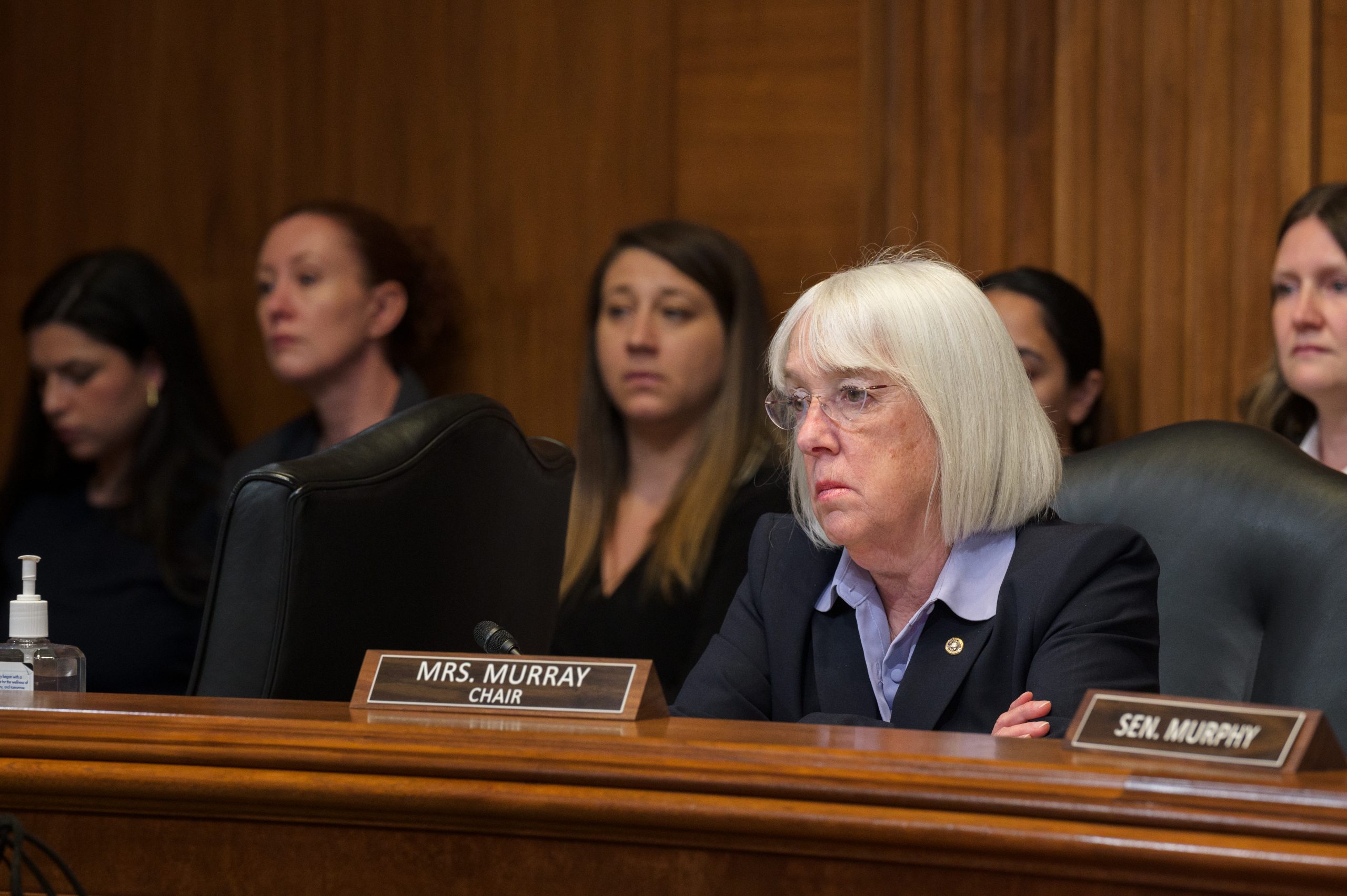Washington DC – Today, U.S. Senators Patty Murray (D-WA), a senior member and former chair of the Senate Veterans Affairs Committee, and Tammy Duckworth (D-IL), a combat veteran and member of the U.S. Senate Armed Services Committee, led 17 of their colleagues in a bipartisan, bicameral call to the leadership of the Senate and House Armed Services Committees urging them to retain the House language in the Fiscal Year 2024 National Defense Authorization Act (NDAA) expanding servicemember eligibilityfor the Department of Defense (DoD) Basic Needs Allowance (BNA) program. The BNA program provides a monthly allowance to qualified eligible low-income servicemembers with dependents. This allowance addresses food insecurity faced by some military families and improves overall military readiness. The expanded program will address the needs of the growing number of servicemembers who are food insecure and will support long-term efforts in solving military hunger.
“Our servicemembers are our military’s greatest resource,” escribieron los miembros. “When they experience hunger, we put our national security at risk. We must give members of our military every possible tool to focus on the mission and be ready to defend our Nation when called to action. As you negotiate during conference and reconcile the differences between the House and Senate bills, we urge you to do right by our servicemembers and their families, who sacrifice considerably when they volunteer to serve.”
According to a July 2022 study from the Office of the Secretary of Defense for Personnel and Readiness, 24 percent of all active duty servicemembers experienced some level of food insecurity over the prior 12 months, totaling more than 286,000 individuals. As it is currently implemented, the BNA reaches fewer than 3,000 servicemembers.
U.S. Senators Richard Blumenthal (D-CT), Cory Booker (D-NJ), Dick Durbin (D-IL), John Fetterman (D-PA), Kirsten Gillibrand (D-NY), Angus King (I-ME), Lisa Murkowski (R-AK), Raphael Warnock (D-GA) and Peter Welch (D-VT), and U.S. Representatives Sanford D. Bishop Jr. (D-GA-02), Sara Jacobs (D-CA-51), Cathy McMorris Rodgers (R-WA-05), Gwen Moore (D-WI-04), Marilyn Strickland (D-WA-10), Jill Tokuda (D-HI-02) and Susan Wild (D-PA-07) also signed the letter.
Una copia completa de la carta está disponible. aquí y por debajo.
Dear Chairman Reed, Ranking Member Wicker, Chairman Rogers, and Ranking Member Smith:
We write to request that the final version of the National Defense Authorization Act for Fiscal Year 2024 (NDAA) include Section 621 of the House bill (“Basic needs allowance: exclusion of basic allowance for housing from the calculation of gross household income of eligible member of the Armed Forces”) and ask that the Senate recede with respect to Section 605 of the Senate bill (“Modification of calculation of gross household income for basic needs allowance to address areas of demonstrated need”). This legislation will best address the needs of the substantial number of servicemembers and their families who are food insecure, as identified in recent data and reporting by the DoD.
The BNA program, established by Congress in the FY2022 NDAA, provides a monthly allowance to qualified servicemembers to make up the difference between their gross household income and the income needed for members of the household to attain a modest yet adequate standard of living (currently the eligibility criteria and benefits are aligned with 150 percent of the federal poverty level). This allowance addresses readiness, retention and recruitment challenges resulting from the scourge of food insecurity among our active duty military families, a growing problem that Secretary of Defense Lloyd Austin has prioritized addressing.
In July 2022, the Office of the Secretary of Defense for Personnel and Readiness released a new analysis2 suggesting that previous assessments have underestimated the size of the problem and the number of servicemembers enduring food insecurity. Rather than the 0.1 percent of the force previously identified as food insecure, the updated analysis showed that 24 percent of all active duty servicemembers–approximately 286,800 individuals–experienced some level of food insecurity during the previous 12-month period, with junior enlisted servicemembers facing the highest risk. Similar rates of food insecurity among active duty military households have been documented in the Status of Forces Spouses Survey, reporting by the RAND Corporation and several different surveys conducted by national military service organizations.
As it is currently implemented, the BNA reaches fewer than 3,000 servicemembers, just a tiny fraction of the 286,000 who are estimated to experience food insecurity. The most significant issue limiting the reach of this program is the counting of the Basic Allowance for Housing (BAH) as income for most servicemembers. Food insecurity is a problem that impacts servicemembers at every duty station in the United States, and BAH should be categorically excluded as counted income for the BNA, as has been recommended with broad bipartisan support in House-passed NDAA bills during the past three cycles. This common-sense adjustment to the eligibility guidelines for the BNA will help ensure the majority of military families who struggle with food insecurity are able to access this critical support.
By including Section 621 from the House bill (“Basic needs allowance”) in the final version of the NDAA, Congress can expand much-needed access to the BNA during a time when hundreds of thousands of servicemembers struggle to put food on their tables for themselves and their families. As such, we request that the House provision to expand eligibility for the BNA be included in the final FY2024 NDAA to strengthen the BNA program and adequately address the substantial need identified in the DoD’s own assessments.
Our servicemembers are our military’s greatest resource. When they experience hunger, we put our national security at risk. We must give members of our military every possible tool to focus on the mission and be ready to defend our Nation when called to action. As you negotiate during conference and reconcile the differences between the House and Senate bills, we urge you to do right by our servicemembers and their families, who sacrifice considerably when they volunteer to serve. Thank you for your consideration of this request, and we look forward to working with you on this matter.
###


